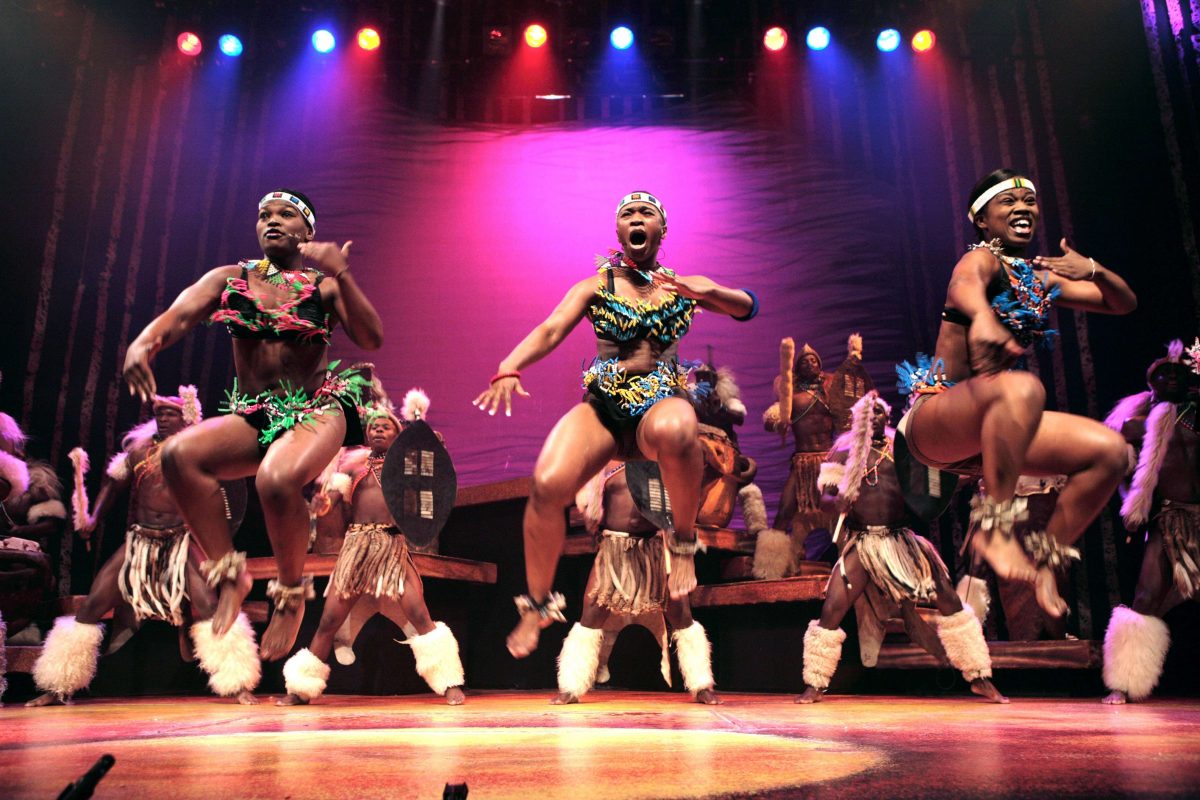
Africa Umoja—The Spirit of Togetherness is a beautiful musical about the history of South Africa told through the musical traditions that have shaped the country. “Umoja,” a Swahili word for unity, is a fitting title for a vibrant and culturally expressive theatrical work.
Audiences have a chance to learn more about South Africa’s vibrant musical legacy with a limited run through October 28 at the historic Hippodrome Theatre.
“It’s very important to show my history especially in South Africa, because for many years it’s been excluded because of apartheid,” said co-creator Todd Twala. “A lot of people don’t know about my country because we were in seclusion. We were taught a very different history.”
Started as an advocacy and leadership initiative for young South Africans who struggled with homelessness and school retention, the Africa Umoja initiative later evolved into an extravagant production that allowed its participants to travel outside of South Africa to share their powerful dance traditions around the world.
“There was a need for me to teach the youth of South Africa about where they come from musically around dance,” Twala continued. “All over the country they adopted foreign clothes. It was important to teach them who they were and where they came from musically.”
Africa Umoja features dances from the rural countryside of South Africa, the booming metropolises of Johannesburg, and regions in between. The performance includes mourning songs and movements of women whose husbands left them to find work, the slapping gumboot dances of miners, the snake dances of Venda girls on the verge of adulthood, and some contemporary dances from South African youth.
The show chronicles South African history by recalling memories from the life of musician and performer Penuel Bhekizitha Ndaba, lovingly known as “Hope.” Though Hope passed away in 2014, a cast member stands in his place as a narrator who explains cultural nuances and expresses, with great pride, the music that helped black South Africans overcome overwhelming oppressions.
Hope also serves as a transitional guide who contextualizes the sociopolitical issues that influenced the musical traditions of each era. “Our music is like our country—it is growing,” Hope notes as a cast of dancers and drummers take over the stage.
All of the cast members give high energy, invigorating performances that not only highlight the sophistication and dexterity of Twala’s choreography, but also showcase a nuanced representation of dance traditions that are rarely exhibited outside of South Africa. One of the first scenes that opens the show featured Sangoma, Zulu healers, and shaman who communicated with ancestral spirits through a chorus of drumming and songs. Men in full Zulu regalia stomped the ground and kicked their legs up towards the sky. The thunderous sound of drums and feet coalesced with the melodic voices of the men. In those moments, the audience became witness to something sacred, an experience that needs no translation.
That feeling of being a part of something special, not just a passive member of the audience, persisted throughout the over two-and-a-half-hour performance. Each scene established how the dances and fashion of South African communities evolved over time, post-migration from rural communities to the city, through police violence and apartheid, into the contemporary moment.
“We are living in borrowed times, we need to support each other, look after each other, help each other embrace each other instead of pointing fingers,” Twala said. “The weather is changing. The world is changing. There is no time for all of this craziness. My wish is that when people see the show they will leave the theater with an open heart, togetherness, and happiness.”